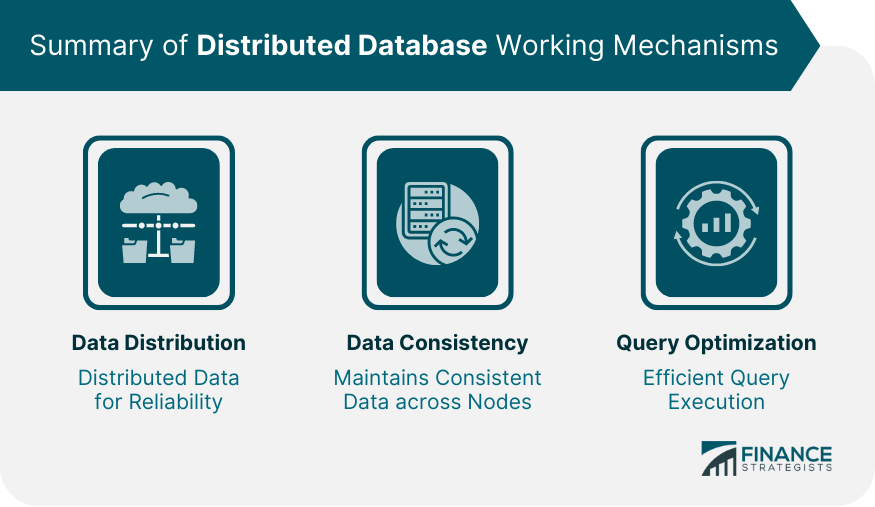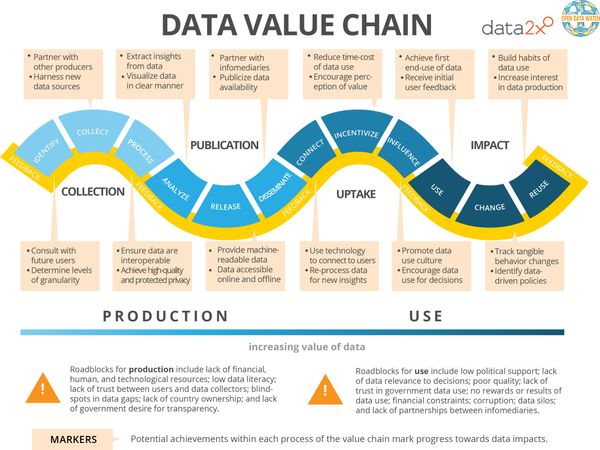Overview
Introduction to SQL
SQL, or Structured Query Language, is a powerful tool for managing and manipulating data in relational databases. It provides a standardized way to interact with databases, allowing users to retrieve, insert, update, and delete data. In this article, we will explore the benefits of database virtualization and how it can maximize business potential. Database virtualization is the process of abstracting the physical aspects of a database, such as storage and location, from the applications and users that interact with it. This allows for greater flexibility and scalability, as well as improved performance and cost savings. By virtualizing databases, businesses can easily provision and manage multiple databases, consolidate resources, and achieve higher levels of availability and disaster recovery. Additionally, database virtualization enables organizations to seamlessly migrate data between different platforms and vendors, reducing vendor lock-in and increasing agility. Overall, database virtualization offers numerous advantages that can greatly enhance business operations and decision-making.
Importance of SQL in Business
SQL plays a crucial role in the success of businesses today. It enables organizations to effectively manage and analyze large volumes of data, allowing for informed decision-making and strategic planning. One of the key aspects of SQL is query optimization, which involves improving the performance and efficiency of database queries. By optimizing queries, businesses can enhance the speed and accuracy of data retrieval, leading to improved productivity and customer satisfaction. Additionally, query optimization helps businesses save valuable resources, such as time and processing power, by reducing the overall workload on the database server. Overall, SQL and query optimization are essential for maximizing business potential and gaining a competitive edge in today’s data-driven landscape.
Benefits of Using SQL
SQL, or Structured Query Language, is a powerful tool for managing and analyzing data in relational databases. It offers numerous benefits that can help businesses maximize their potential and achieve their goals. By using SQL, businesses can efficiently store and retrieve large amounts of data, perform complex queries and calculations, and gain valuable insights from their data. SQL also allows for data integration and manipulation, enabling businesses to combine data from different sources and transform it into meaningful information. Additionally, SQL provides a secure and scalable solution for data management, ensuring the integrity and consistency of the data. Overall, the use of SQL can greatly enhance a business’s ability to make data-driven decisions and achieve their objectives.
Understanding SQL Queries

Basic SQL Syntax
SQL is a powerful programming language used for managing and manipulating relational databases. It provides a standard syntax that allows users to interact with databases and perform various operations. One of the fundamental aspects of SQL is its ability to manipulate data. Data manipulation involves retrieving, inserting, updating, and deleting data from a database. This allows businesses to efficiently organize and modify their data to meet their specific needs. With SQL, businesses can easily retrieve valuable insights from their data and make informed decisions. By learning the basic SQL syntax, individuals can gain a solid foundation in data manipulation and unlock the full potential of their business.
Selecting Data
In the section on Selecting Data, beginners can learn the fundamental concepts of querying a database using SQL. This is a crucial skill for anyone working with data, as it allows them to retrieve and analyze specific information from large datasets. Additionally, the paragraph will cover key strategies for optimizing queries to improve performance and efficiency. By understanding how to write efficient queries, businesses can maximize their potential for extracting valuable insights from their data.
Filtering and Sorting Data
Filtering and sorting data are essential operations in any database system. By applying filters, you can narrow down the data set to only include the specific records that meet certain criteria. This is especially important in a scalable database system, where the volume of data can be massive. Sorting data allows you to arrange the records in a specific order, such as ascending or descending based on a particular column. These operations are crucial for optimizing data retrieval and analysis, enabling businesses to efficiently extract insights from their databases.
Optimizing SQL Performance

Indexing and Query Optimization
In order to maximize the performance of your SQL queries, it is crucial to understand the importance of indexing and query optimization. Indexing plays a vital role in improving the speed and efficiency of database operations. By creating indexes on the columns frequently used in queries, you can significantly reduce the time it takes to retrieve data. Additionally, query optimization techniques such as rewriting queries, using appropriate join types, and optimizing subqueries can further enhance the efficiency of your SQL queries. By implementing these best practices, you can ensure that your SQL queries are executed in the most efficient manner, thereby maximizing the potential of your business.
Avoiding Common Performance Pitfalls
In order to maximize the potential of your business using SQL, it is crucial to avoid common performance pitfalls. One such pitfall to be aware of is the inefficient use of views. Views are virtual tables that are created based on the result of a query. While views can provide convenience and simplify complex queries, they can also impact performance if not used properly. It is important to optimize the creation and usage of views to ensure efficient execution of queries. By understanding the best practices for working with views, you can avoid unnecessary overhead and improve the overall performance of your SQL queries.
Optimizing Data Retrieval
Optimizing data retrieval is crucial for maximizing the potential of your business. By efficiently retrieving data from your SQL database, you can gain valuable insights and make informed decisions. There are several best practices to follow when it comes to optimizing data retrieval. First, ensure that your database is properly indexed to improve query performance. Additionally, consider using caching mechanisms to reduce the load on your database and improve response times. Another important aspect is to minimize the number of queries by optimizing your SQL queries and utilizing join operations effectively. By implementing these best practices, you can significantly improve the efficiency and speed of data retrieval, ultimately leading to better business outcomes.
Analyzing Business Data with SQL

Aggregating Data
Aggregating data is a crucial step in analyzing and summarizing large datasets. By using database index techniques, businesses can efficiently retrieve and process data to gain valuable insights. Database indexes allow for faster data retrieval by creating a separate structure that organizes the data in a specific order. This enables businesses to perform aggregate functions, such as calculating sums, averages, or counts, on large datasets more efficiently. Additionally, database index techniques help optimize query performance and improve overall database efficiency. By leveraging these techniques, businesses can maximize their potential by quickly aggregating and analyzing data to make informed decisions and drive growth.
Grouping and Summarizing Data
Grouping and summarizing data is a crucial aspect of data analysis using SQL. By grouping data, you can organize it into meaningful categories based on specific criteria. This allows you to gain insights into patterns and trends within your data. Summarizing data involves calculating aggregate values, such as sums, averages, and counts, for each group. This helps you to understand the overall characteristics and distributions of your data. Grouping and summarizing data in SQL enables you to extract valuable information and make informed business decisions.
Using Joins for Data Analysis
Using joins is a crucial technique for data analysis in SQL. By combining data from multiple tables based on a common column, joins allow us to gain valuable insights and extract meaningful information. With joins, we can perform complex queries and uncover hidden relationships within our data. Whether it’s finding patterns, identifying trends, or examining correlations, joins provide a powerful tool for maximizing our business potential with SQL.
SQL Best Practices

Writing Efficient and Maintainable SQL Code
Writing efficient and maintainable SQL code is crucial for maximizing business potential. By following best practices, businesses can ensure that their SQL code is optimized for performance and easy to maintain. Efficient SQL code can lead to faster query execution times, reducing the overall processing time for data analysis. Additionally, maintainable SQL code allows for easier debugging and troubleshooting, saving valuable time and resources. By implementing these practices, businesses can reshape industries by leveraging the power of SQL to gain insights and make data-driven decisions.
Using Proper Naming Conventions
Using proper naming conventions is crucial when working with SQL. It helps improve the readability and maintainability of your code, making it easier for other developers to understand and work with. By following a consistent naming convention, you can ensure that your database objects, such as tables, columns, and indexes, have meaningful and descriptive names. This not only makes it easier to identify and locate specific objects but also helps prevent naming conflicts and confusion. Additionally, using proper naming conventions can enhance the performance of your queries by allowing the database engine to optimize the execution plan. Overall, adhering to proper naming conventions is an essential practice for maximizing the business potential of SQL.
Documenting SQL Queries
Documenting SQL Queries is crucial for maintaining a well-organized and efficient database. It allows developers and analysts to understand the purpose and functionality of each query, making it easier to troubleshoot and optimize database performance. By documenting SQL queries, businesses can ensure that their database remains scalable, secure, and reliable. Additionally, proper documentation enables knowledge sharing and collaboration among team members, fostering a culture of transparency and accountability. To maximize business potential with SQL, it is essential to prioritize documenting SQL queries and adhere to best practices.
Conclusion

Summary of SQL Benefits for Businesses
SQL is a powerful tool for businesses, offering a wide range of benefits. It allows businesses to efficiently manage and organize large amounts of data, enabling them to make informed decisions and gain valuable insights. With SQL, businesses can easily extract, manipulate, and analyze data, helping them identify trends, patterns, and opportunities. This enables businesses to optimize their operations, improve customer satisfaction, and drive growth. SQL also provides businesses with the ability to integrate data from multiple sources, allowing for a comprehensive view of their operations. Overall, SQL is essential for businesses looking to maximize their potential and stay competitive in today’s data-driven world.
Importance of Continuous Learning and Improvement
Continuous learning and improvement are crucial for businesses to stay competitive in today’s fast-paced and ever-changing market. In the context of SQL, one of the key areas that require continuous learning and improvement is MySQL query performance. MySQL query performance plays a vital role in the overall efficiency and effectiveness of database operations. By understanding and implementing best practices for optimizing query performance, businesses can ensure faster and more efficient data retrieval, processing, and analysis. This, in turn, leads to improved decision-making, enhanced user experience, and ultimately, maximized business potential.
Final Thoughts
In conclusion, SQL is a powerful tool for maximizing business potential. By leveraging the insights and best practices provided by SQL, businesses can make data-driven decisions and optimize their operations. SQL allows for efficient data management, analysis, and reporting, enabling businesses to uncover valuable insights and drive growth. With its widespread adoption and compatibility with various database systems, SQL is a must-have skill for professionals in the data-driven business landscape. By mastering SQL, individuals can unlock the full potential of their data and gain a competitive edge in today’s fast-paced business environment.
In conclusion, OptimizDBA Database Optimization Consulting is the trusted industry leader in remote DBA services since 2001. With over 500 clients, we guarantee a significant increase in performance for your database. Experience transaction speeds that are at least twice as fast as before, with average speeds often 100 times, 1000 times, or even higher! If you’re looking to optimize your database and improve its performance, look no further than OptimizDBA. Visit our website today to learn more about our services and how we can help you achieve optimal database performance.







